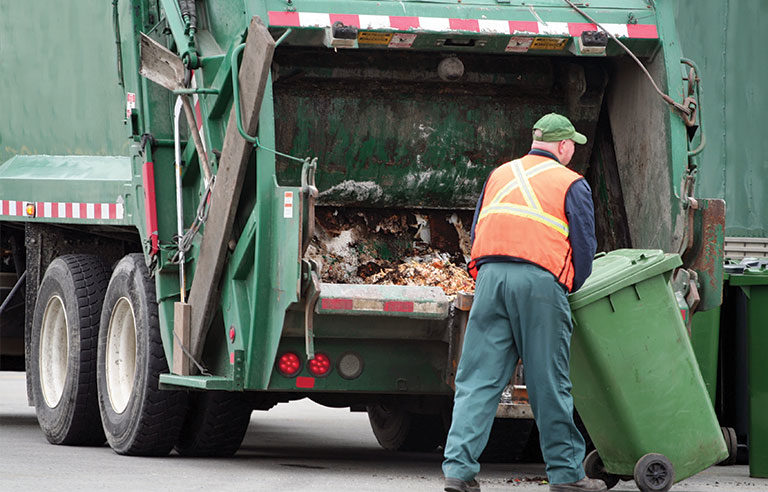SWANA calls for renewed focus on safety amid ‘unacceptable’ surge in sanitation worker deaths

Silver Spring, MD — Seventeen sanitation workers – including 13 in the United States and four in Canada – were killed in the first three weeks of 2019, the Solid Waste Association of North America reports, a development the organization calls “unprecedented” and “unacceptable” as it urges industry employers and employees to renew their commitment to safety.
Refuse and recyclable material collectors experienced a rate of 35 fatal workplace injuries per 100,000 full-time equivalent workers in 2017, the fifth highest rate among civilian occupations, Bureau of Labor Statistics data shows.
“Sadly, the majority of industry employees are injured or killed outside their trucks,” Jeff Martin, vice president of Houston-based Waste Management, said in the release. “With the continued increase of distracted motorists, all employees must remain 100 percent focused, 100 percent of the time, while serving our communities.”
| Sign up for Safety+Health's free monthly email newsletters and get the news that's important to you. |
In response to an increase in incidents involving distracted drivers crashing into garbage trucks, various state legislatures have aimed to expand awareness. In 2009, Michigan enacted a “Slow Down to Get Around” law, which derived its name from a National Waste & Recycling Association campaign. Under the law, drivers must travel below the posted speed limit and avoid distractions when passing stationary garbage or recycling collection vehicles.
Martin and others have advocated the increased use of automated side-loader garbage trucks, which are designed to augment worker safety by limiting exposure to hazards outside the truck, as well as those associated with manual lifting.
SWANA offers other safety tips for sanitation workers:
- Wear personal protective equipment, especially high-visibility vests and/or outerwear.
- Don’t use cellphones while driving garbage trucks or at disposal facilities.
- Buckle up.
Post a comment to this article
Safety+Health welcomes comments that promote respectful dialogue. Please stay on topic. Comments that contain personal attacks, profanity or abusive language – or those aggressively promoting products or services – will be removed. We reserve the right to determine which comments violate our comment policy. (Anonymous comments are welcome; merely skip the “name” field in the comment box. An email address is required but will not be included with your comment.)

